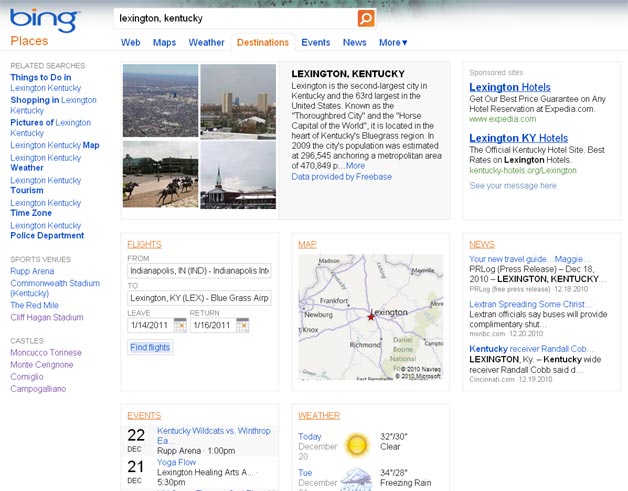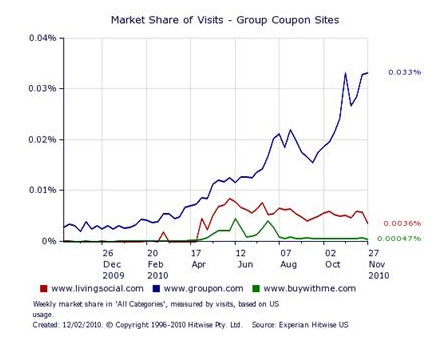There is a lot of hype around location-based services and the marketing opportunities that come with them, but check-in apps aren’t the only way to reach consumers on a location basis. Familiar with digital out-of-home advertising? It’s not exactly new and trendy, but there is a growing number of opportunities in this space as well.
Rob Gorrie is President and co-founder of Adcentricity, a digital out-of-home marketing firm that counts Disney, American Express, Verizon, Bank of America, Toyota, GM, Samsung, and Evian among its recent clients. He shared some thoughts with WebProNews about why he sees this kind of marketing as the next hot and upcoming medium in the ad space.
 "Digital out-of-home advertising is a part of location based marketing. The digital out of home medium is all about the location and allows you to extend your marketing efforts and connect people, places, and brands," he says. "Digital out-of-home/location based is a space made up of LCD screens that have been placed in premium consumer viewing positions inside of venues consumers frequent most – from restaurants and bars, to taxi cabs and pharmacies. The screen is controlled by a software system that plays a closed-loop of content. The content on the screen is intended to provide information and/or entertainment that is relevant to the viewers inside the environment. As a medium used for advertising, the opportunity exists to have a highly effective, direct communication with consumers in a contextual manner. According to Neilsen, digital video in public venues reaches more Americans each month (70%) than video over the Internet (43%) or Facebook (41%)."
"Digital out-of-home advertising is a part of location based marketing. The digital out of home medium is all about the location and allows you to extend your marketing efforts and connect people, places, and brands," he says. "Digital out-of-home/location based is a space made up of LCD screens that have been placed in premium consumer viewing positions inside of venues consumers frequent most – from restaurants and bars, to taxi cabs and pharmacies. The screen is controlled by a software system that plays a closed-loop of content. The content on the screen is intended to provide information and/or entertainment that is relevant to the viewers inside the environment. As a medium used for advertising, the opportunity exists to have a highly effective, direct communication with consumers in a contextual manner. According to Neilsen, digital video in public venues reaches more Americans each month (70%) than video over the Internet (43%) or Facebook (41%)."
That’s pretty impressive.
"Consumer behavior has changed and our mobile patterns have changed, but locations have not," Gorrie tells WebProNews. "While we may get our news on a phone and constantly send Tweets and videos on the go, consumers still have to go to a physical grocery store, to the gas station, to the coffee shop, out to a bar with friends; what happens in these environments are opportunities for advertisers. The medium lets advertisers reach a consumer with a highly targeted message by geography, demography and intent."
"For example," he continues. "There are rare moments when distracted, multi-tasking, media-gargling young men and women slow down long enough to think and focus…like when they’re in bars, restaurants and entertainment venues wondering what beverage to order, discussing cool new gadgets, gear and games and destinations all the while a mash of smartphones laying in front of them. A major national beer brand recognized that last year, and booked a product launch campaign on location based video screens running in bars and fast casual restaurants across the United States. The result: 72 percent incremental sales lift on that beer in venues where the campaign ran."
Gorrie’s company describes the medium as the intersection of mobile, location, and social media.
"This is part of a brand new, on-demand experience that reaches consumers across multiple touch-points," he says. "Activities that might start on one medium get broadened by other mediums and then reach, using public screens, right into where people are gathering. Consider a beer product promotion targeting sports fans that starts with in-store promotion and broadcast, drives people online, encourages people to enter and interact through mobile and social, and then pulls all that promotion together on targeted screens in sports bars, where the engagement can be driven even further."
"The medium provides different strengths for different industries and campaign objectives," he adds. "That being said, the industry has seen a variety of household brands advertising in the space, like Samsung, Microsoft, Disney, Bloomingdales and even President Barack Obama. Advertisers can be assured that the ad will be played at specific times throughout a day, understands who is watching the screens, what they are doing inside the environment, have an understanding of what frame of mind they are in at the moment and how many times the ad will play, as well has having all the advantages of digital creativity. By discipline, the medium has a high impact for brand marketers with hypertargeting capabilities and contextual advertising. We did a campaign with Samsung that realized a 49% increase in unaided brand awareness."
Do consumers care about the medium? Well, an effective ad is an effective ad, so why should this be any different? "Consumers like the medium because it is highly targeted and relevant to them when they are inside of that location," says Gorrie. "They get interesting content served up to them as well as promotions."
"The medium is starting to and will have a huge impact within the retail environment," he tells us. "Using digital out-of-home screens in a retail environment has many features and benefits; mainly garnering the consumer’s attention and the point-of-purchase and eliminating the high cost of printing and distributing promotional materials. Whether it is intended to build a brand, influence customer purchase intent or influence brand decisions choices, the dynamic visual experience created by digital out-of-home screens in-store show a high correlation with sales increases. In pure marketing terms, it has always made infinitely more sense to advertise goods in the immediate vicinity of where goods are sold. Marketers get more excited by the notion of advertising when people are shopping, than they do pitching people when they’re comfortably lodged on a sofa. There is now plenty of evidence, from retailers as large as Walmart, showing screens in retail have a fully validated double-digit lift impact on promoted items."
Look for brands to start using augmented reality more and more as well. For example, Layar just opened up its platform to any iPhone app. Moves like this have the potential to be very powerful.





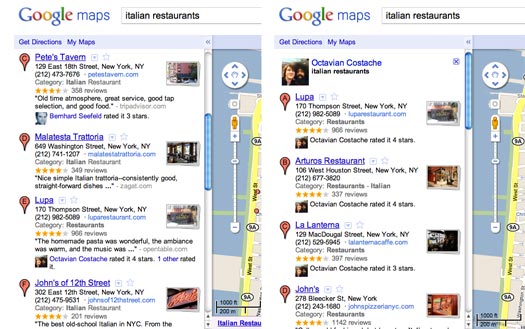
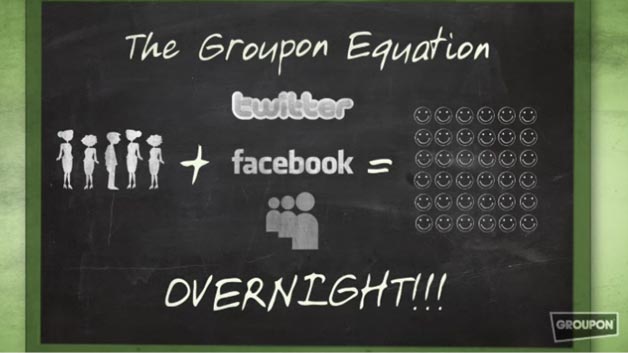
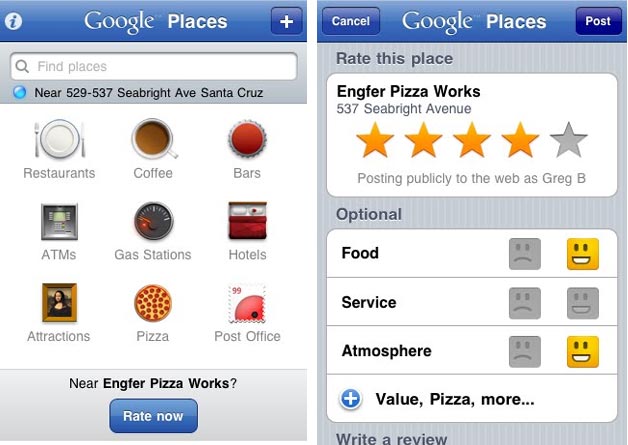

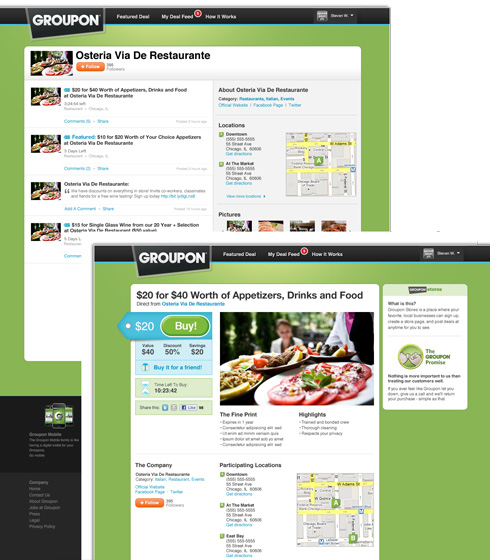
 All of that said, a website can still bring a level of credibility to a business. It’s a good idea to have a yourbusiness.com or something like this for people simply looking for your business specifically. If they can’t find your site when they’re actively looking for it, it’s not going to reflect well.
All of that said, a website can still bring a level of credibility to a business. It’s a good idea to have a yourbusiness.com or something like this for people simply looking for your business specifically. If they can’t find your site when they’re actively looking for it, it’s not going to reflect well. 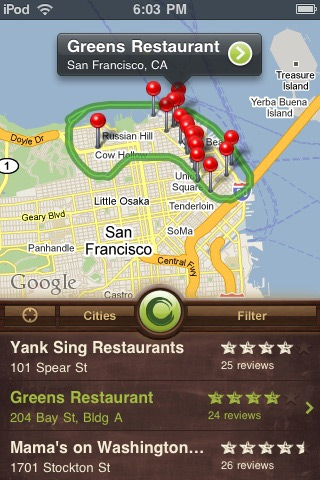
 Actually, it’s not just Google that is looking for inroads in this area. PayPal and Apple would also appear to be interested. In fact, the report suggests that PayPal is even open to partnering with companies like Google.
Actually, it’s not just Google that is looking for inroads in this area. PayPal and Apple would also appear to be interested. In fact, the report suggests that PayPal is even open to partnering with companies like Google. 
